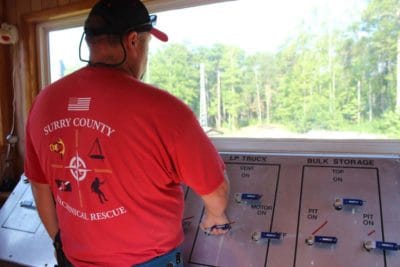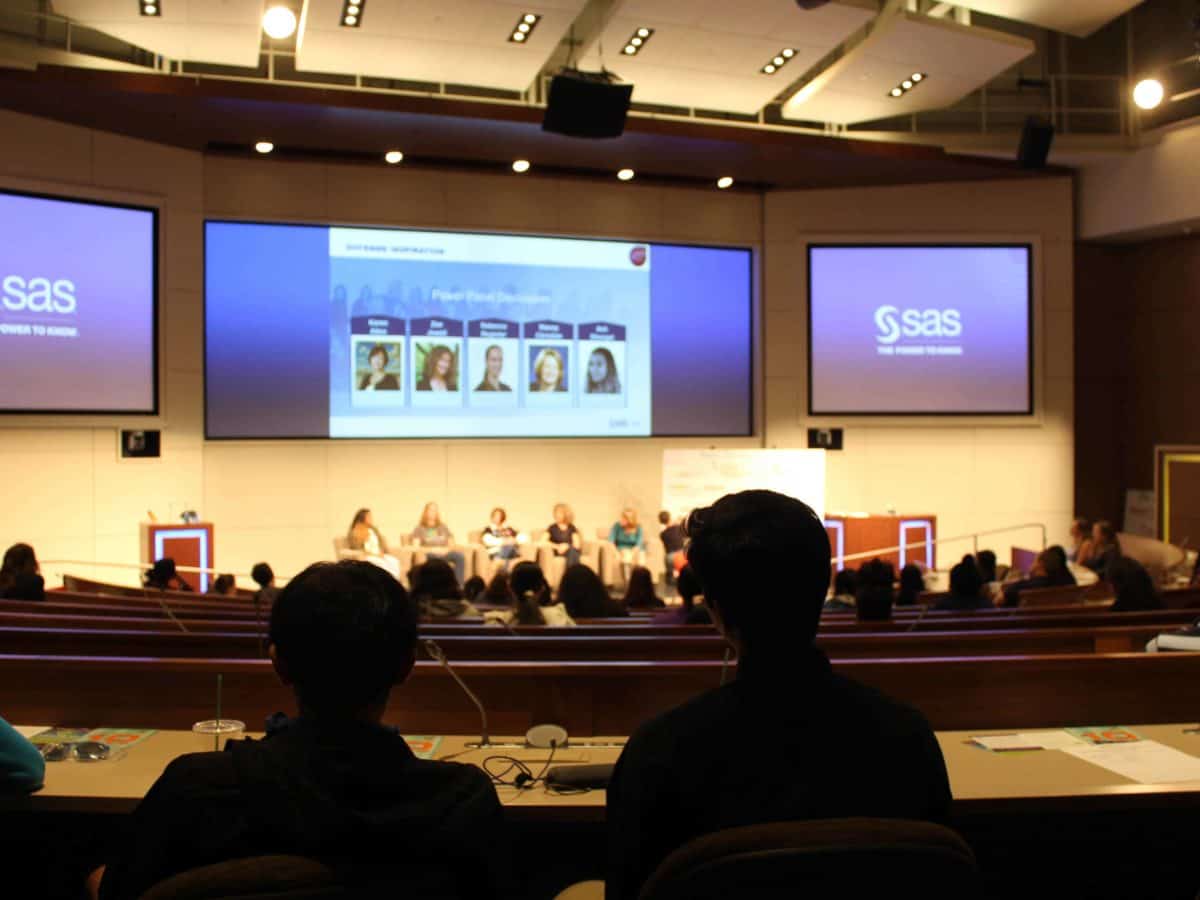

When Ash Dhungel started high school she thought she was going to be a journalist, but it didn’t stick. A lawyer? A mechanical engineer? Pre-med?
Her answer came when she joined the Green Hope High School Robotics Club, known as FRC 5190 — a boy’s clique where the guys not only worked on robots after school but also well into their spare time.
“It was definitely uncomfortable at first,” Dhungel said, adding that there were many conversations where she didn’t know one word of what the club members said. But she pushed her way into the group anyway, and she found her passion in the process of continuously bettering ideas in the trial and testing atmosphere of robotics.
Now, she’s a female fixture in the group and in competitions, working to shake up the clique and inspiring her fellow female classmates to bring in their brain power.
The experience also led her to organize the Doyenne Inspiration Event held at SAS headquarters in Cary last Friday and aimed at giving “young women the opportunity to learn more about engineering through a hands-on, female-focused event.” Students from Green Hope High filled the seats to listen to keynote speaker Laura Bottomley of NC State University and an all-women panel of STEM leaders.
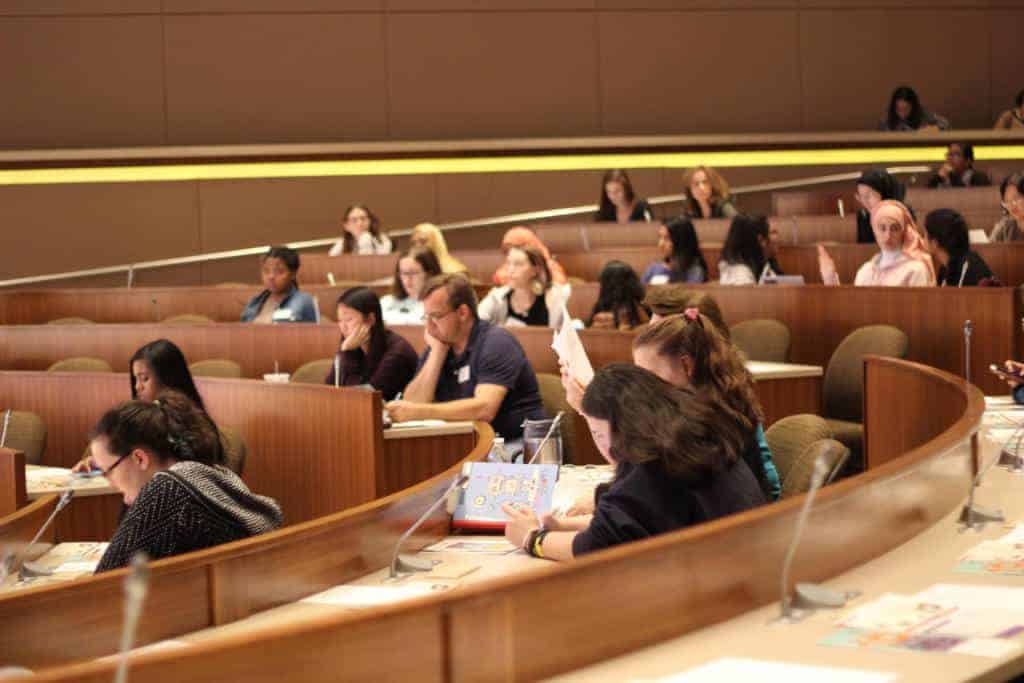

Bottomley, Director of Women in Engineering at NC State, started her keynote in an unorthodox fashion — by taking off an audience member’s shoe.
“I promise I’ll give it back,” she said, taking the sneaker to the stage. Holding the shoe up for everyone to see, Bottomley explained how the horizontal ridges make them easier to walk in and how a circle pattern on the heel makes it easier to pivot. In contrast, shoes designed for basketball and indoor soccer feature this pattern on the ball of the foot to help reduce injuries from the pivots during play.
Her show-and-tell continued — from a fluorescent light bulb flashing when held next to a Tesla coil to the cotton inside a baby diaper filled with polyacrolate crystals to absorb water.
“Engineers deal with the things that we use every day,” Bottomley said.
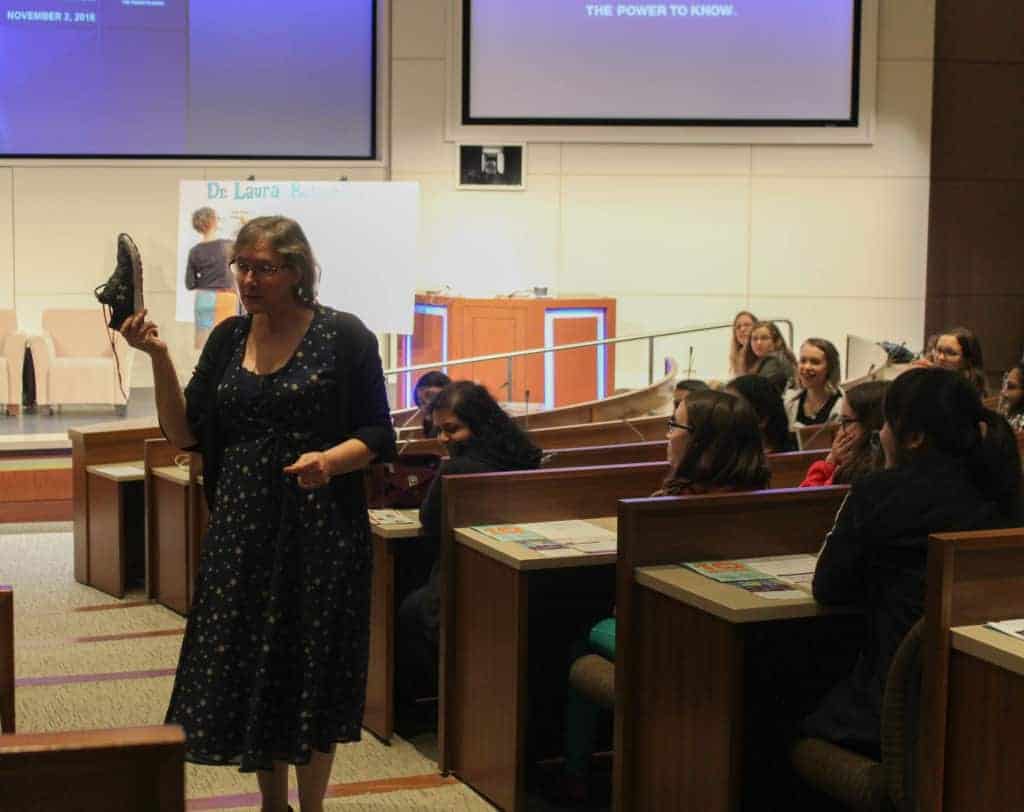

In her own career, Bottomley has worked on “the crazy idea that people might want the internet to come to their home on the same lines they got their telephone on” at AT&T Bell Labs and the first GPS satellites at Texas Instruments.
“This is what you get to do when you work on stuff related to STEM,” she said. “You get to work on things that make a big darn difference in the world. You get the chance to make people’s lives better. You get to make your mark.”
She pointed to the National Academy of Engineering’s 14 Grand Challenges for Engineering issued in 2008, which include topics like access to clean water, preventing nuclear terror, and securing cyberspace.
“The thing that struck me about them is, number one, that they are relevant to every single one of us,” Bottomley said.
“I have time to get you ready to solve these grand challenges, so that’s what I’m spending my life doing now … is worrying about solving the grand challenges by getting you to get prepared in STEM, to stick with it, and save the world, because somebody’s got to do that, and why shouldn’t it be you?”
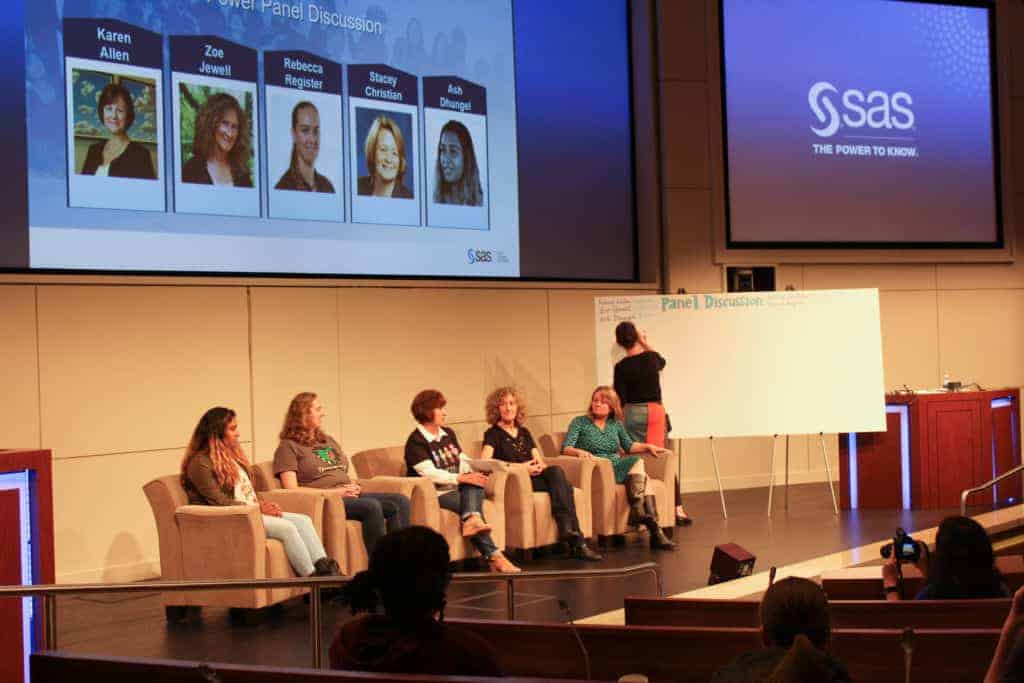

After Bottomley’s keynote, five female panelists took the stage, including Zoe Jewell, founder of Wildtrack; Rebecca Register, a software engineer at NetApp; Stacey Christian, senior director of advanced analytics R&D at SAS; Karen Allen, senior director of internal communications at SAS; and Ash Dhungel herself.
The panelists shared insights from their pathways working in the STEM industry as well as advice for high schoolers. Here are some standout quotes:
“The most exciting thing for me is that today [women] are fighting as a team, and we’re not fighting for a place.” – Ash Dhungel
“When I’m hiring and interviewing people, I don’t care if you know the language we’re working in … I’m looking at how you solve problems.” – Stacey Christian
“It was myself and another girl. We were the only two girls in this class … Sometimes it really makes you feel like you’re the only one. You’re alone in this game.” – Karen Allen
“Don’t be quiet. If you have an idea, just express it.” – Rebecca Register
“Men and women do think different. They need to learn how we think.” – Karen Allen
“When you’re talking with people from different fields, you’re constantly having to ask stupid questions. That’s the sort of thing that really generates creativity. It really pushes the boundaries.” – Zoe Jewell
“Maybe the reason some of these [challenges] haven’t been solved yet is because we need a new way of thinking about it. We’ve had the last hundred years or so of male thinking.” – Stacey Christian
“Perhaps one of the biggest challenges in engineering is biodiversity loss. … I want all of you potential engineers out there to think of biological conservation as something that’s part of engineering as well.” – Zoe Jewell
“I think the most exciting aspect of women in career fields is that the STEM career fields are always changing. … Every bit of it is changing every time you turn around. … You will always be able to contribute.” -Stacey Christian
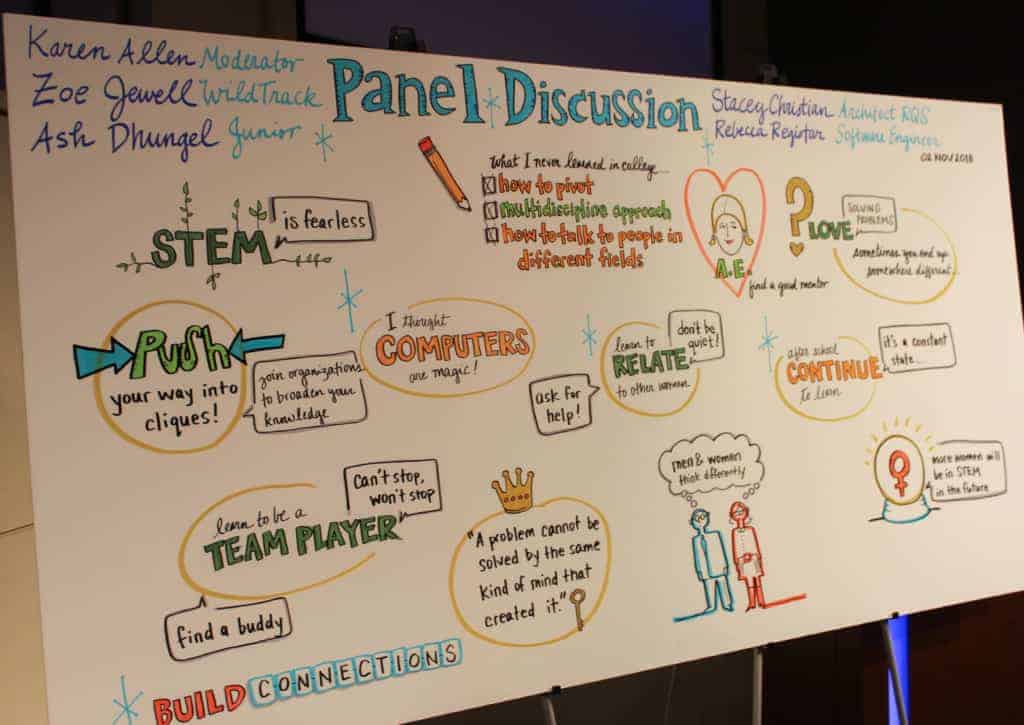

The event closed with a networking session for the high school students to be able to speak with panelists.
“I had a shout out in the middle to my mentors, and I couldn’t have done it without them,” said Dhungel. “So I want them to have people like that as well.”


